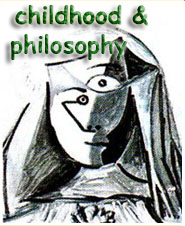the language of the standard and fragil individuals
DOI:
https://doi.org/10.12957/childphilo.2016.22964Keywords:
CUERPO – DEBILIDAD – FRAGILIDAD – NORMALIDAD.Abstract
This text addresses the question of the body as battleground between normality and beauty, and, on the other hand, uniqueness, loneliness and fragility. The question is to understand what is the difference between those bodies - and languages - that are spoken about and those bodies - and languages - speaking. Maybe this is not a final question, which ends, but one that presents a complexity of all the issues here partially formulated, and is drives essential a completely different notion of body. A notion of bodies in relation, where there is no trace about lacking or what is missing.The end of normal body idea. Escape from the duty to prosecute. The encounter with the other, without conditions. The transformation of the self in otherness.The reason which helps us to define the other subject faded almost completely, sprayed in their arguments and shattered in its naturalization. There is no longer a united subject or, better to say, there has never been a subject self-centered, all-knowing, able to fill up and make itself absolute, complete. This is the reason to demystify. Being capable of a theory of weakness, the fragmentary, the vulnerability of incomplete and no longer as poor condition of agony, but as one that makes us human. With this intention, it is discussed the issue of insanity, mental weakness and barbarism, through a pathway of philosophical and literary texts that, perhaps, compose a possible theory of fragility.Downloads
Download data is not yet available.
Downloads
Published
2016-06-25
How to Cite
SKLIAR, Carlos. the language of the standard and fragil individuals. childhood & philosophy, Rio de Janeiro, v. 12, n. 24, p. 371–389, 2016. DOI: 10.12957/childphilo.2016.22964. Disponível em: https://www.e-publicacoes.uerj.br/childhood/article/view/22964. Acesso em: 17 jul. 2025.
Issue
Section
dossier




